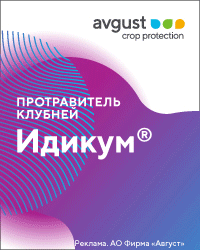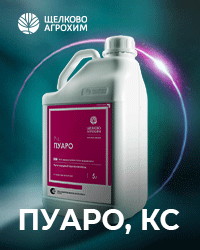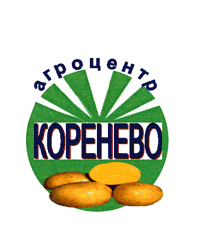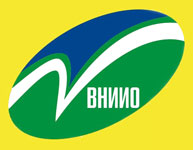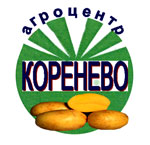UDC 635.11:631.82
https://doi.org/10.25630/PAV.2024.27.37.004
Borisov V.A., Filroze N.A., Bebris A.R.
Table beet is the most important vegetable crop, the leader among vegetables in terms of dry matter content, sugars, betanine, and biologically active substances. The Ministry of Health of the Russian Federation has established the need for each citizen of the country to consume 18 kg / person per year (second place after cabbage). However, the production of beetroot does not allow this result to be achieved. One of the reasons for the low level of table beet production in the Russian Federation is the low yield of this crop (24.3 t/ha in 2020), which is very far from its biological capabilities. The purpose of the research: to identify the most productive varieties with a high yield of standard products, responsive to fertilizers, and having competitive performance with popular foreign hybrids. Long-term studies of the department of agriculture and agrochemistry (2010-2019) showed that the most important reserve for increasing the productivity of table beet plants is the optimization of plant nutrition and the introduction of new varieties and hybrids, which allows increasing its average annual yield to 52-54 t/ha, and for some varieties and hybrids up to 61-63 t/ha, with the output of standard products 85-90%. The highest level of table beet yield on average over 10 years was obtained when applying the recommended dose of N120P60K180 fertilizers for new Russian varieties Demetra (63.7 t/ha), Karina (59.9 t/ha), Nezhnost' (56.7 t/ha), which were almost as productive as the best Dutch hybrids F1 Vodan (58.7 t/ha), F1 Ekshen (61.0 t/ha). Against the background of N240P120K360, the highest yield was observed in Russian varieties Gribovskaya ploskaja (62.8 t/ha), Demetra (61.9 t/ha) and Dutch hybrids F1 Boro (62.9 t/ha) and F1 Pablo (62.4 t/ha).
Key words: table beet, mineral fertilizers, productivity, output of standard products
Borisov V.A., D.Sci (Agr.), professor, chief research fellow in the field of agriculture and agrochemistry. E-mail: valeri.borisov.39@mail.ru
Filroze N.A., research fellow, storage direction. E-mail: Suburban_Chevrolet@mail.ru
Bebris A.R., Cand. Sci. (Agr.), junior research fellow, storage direction. E-mail: bebris92@mail.ru
ARRIVG – branch of FSBSI FSVC
- Order of the Ministry of Health of Russia dated August 19, 2016 No 614 «On the approval of recommendations on rational norms for the consumption of food products that meet modern requirements for a healthy diet» [Web resource]. URL: https://normativ.kontur.ru/document?moduleId=1&documentId=451458. Access date: 26.01.2024. (In Russ.).
- Soldatenko A.V., Borisov V.A. Ecological vegetable growing. Moscow. Publishing House of FVC. 2022. 504 p. (In Russ.).
- Belik V.F. Methodology of field experiment in vegetable and melon growing. M. Agropromizdat. 1992. 319 p. (In Russ.).
- Litvinov S.S. Scientific foundations of modern vegetable growing. Moscow. Russian Agricultural Academy. 2008. 771 p. (In Russ.).
- Borisov V.A. Fertilizer system for vegetable crops. Moscow. FGBNU «Rosinformagrotekh». 2016. 394 p. (In Russ.).
- Borisov V.A., Litvinov S.S., Romanova A.V. Quality and keeping quality of vegetables. Moscow. 2003. 625 p. (In Russ.).
- Promising varieties and hybrids of table beet for long-term storage. V.A. Borisov, N.A. Fil'roze, L.M. Sokolova, A.V. Kornev Potato and vegetables. 2019. No4. Pp. 23–25. (In Russ.).
- Burenin V.I., Piskunova T.M., Sokolova D.V. The problem of the quality of beet root crops and ways to solve it. Vegetables of Russia, No. 3, 2016. Pp. 24–31. (In Russ.).
- Wurss J. et al. Compositional characteristics of commercial beetroot products and beetroot juice prepared from seven beetroot varieties grown in upper Austria. J. Food Comp. Anal. 2015. 42. Pp.: 46–55.
- Maheshwari R. K., Parmar V., Joseph L. Latent therapeutic gains of beetroot juice. World Journal of Pharmaceutical Research. 2013. Т. 2. №. 4. С. 804–820.
- Hoon M. W. et al. The effect of variable doses of inorganic nitrate-rich beetroot juice on simulated 2000-m rowing performance in trained athletes. International journal of sports physiology and performance. 2014. Vol. 9. No4. Pp. 615–620.
- Bulletin “Gross yields and yields of agricultural crops in the Russian Federation in 2020” (rosstat.gov.ru).
For citing: Borisov V.A., Filroze N.A., Bebris A.R. Varietal response of table beet plants to the use of increasing doses of mineral fertilizers. Potato and vegetables. 2024. No1. Pp. 53-55. https://doi.org/10.25630/PAV.2024.27.37.004 (In Russ.).

